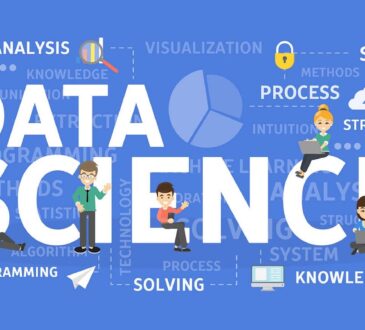
Digitalization has significantly blurred the line between education and technology, giving rise to a profound transformation in how learning is carried out. As the traditional classroom setting expands into the virtual sphere, the importance of digital literacy in online learning becomes more evident than ever.
In recent times, digital literacy has become an essential tool across various scenarios, including remote learning. Digital literacy equips students with the knowledge and competencies required to navigate online platforms, process information, and thrive in a virtual classroom. This article explores the vital importance of digital literacy in online learning, exploring its benefits to students, educators, and society.
What is digital literacy?
Digital literacy is the ability to utilize technologies in identifying, processing, creating, and communicating information. This skill has become extremely important for individuals to thrive in a world that is increasingly reliant on digital technology.
A digital literate possesses the technical and cognitive skill to process information across various formats and use different technologies effectively. Digital literacy is also the foundational skill necessary for utilizing digital features to participate and collaborate with others.
The rise of online learning
Like the need for digital literacy, online learning has also shown significant growth over the last decade, as the internet and education pair up to provide individuals with the opportunity to gain new skills. The prevalence of online learning has become even more noticeable since the COVID-19 outbreak, with the pandemic forcing schools to implement remote learning across various educational levels.
In 2019, the online education market was forecasted to reach $350 billion by 2025 due to the introduction of flexible learning technologies in the corporate and education sectors. With more traditional universities also adopting this trend by making courses accessible online, it is evident that there is a huge demand from people in all industries to learn online for a whole plethora of reasons.
Online learning platforms typically collect and analyze user data, which can enhance the learning patterns and personalize content for each individual. The flexibility and timing of online learning is another major advantage, providing students with the opportunity to schedule workloads according to their convenience.
The cost structure has also significantly contributed to the rapid growth of the market. In most cases, online courses and programs are more affordable than traditional ones, eliminating commuting costs and other expenses due to the advent of virtual learning materials. Online learning is the future and will continue gradually replacing conventional learning processes. As such, current and aspiring students need to prepare themselves by developing digital literacy.
Why is digital literacy necessary for online learning?
Ultimately, the importance of digital literacy becomes increasingly apparent with technology becoming more embedded in the average person’s daily life. Here are some key reasons digital literacy and online learning are taking off.
Access to learning resources
Digital literacy empowers students to become confident in using digital content and tools in their learning. By being digitally literate, students find it easier to identify and access digital content that fits and addresses any purpose. They can analyze and combine data and multiple information sources to better understand various complex concepts. Furthermore, digital literate students are competent in creating and sharing digital content in a useful way.
A student’s access to helpful learning resources is crucial and contributes to the effectiveness of online learning sessions. With digital literacy skills, students become more confident and comfortable with online learning platforms. On the other hand, those without this skill may have their progress limited by an inability to navigate related technology.
Effective communication
Communication is of paramount importance in every learning process. Effective communication plays a multifaceted role in education, fostering knowledge transfer, understanding and clarity, engagement, collaboration, and support, to mention just a few. Online learning recognizes this significance and relies heavily on communication and collaboration tools to streamline every aspect of student-educator interaction.
Digital literacy equips students with the skills to navigate these tools and engage with others safely online. Digital literates are better positioned to utilize online communication and collaboration tools for participating in meaningful discussions, collaborating on group projects, and engaging with instructors and peers in the digital sphere. This aids knowledge transfer and creates a virtual environment where learners can thrive and reach their full potential.
Critical thinking and information evaluation
An individual’s ability to think critically and evaluate information is indispensable, particularly in scenarios that demand quick decision-making, attention to detail, and good comprehension of complex information. In the nursing profession, for example, nurses rely on these competencies for patient care, accurate diagnosis, medication administration, emergency response, and several other elements of the field.
However, while advanced nursing qualifications like Post-MSN DNP online programs provide students with core technical competencies to become advanced practice nurses and innovative leaders, they also emphasize critical thinking and information evaluation through digital literacy. The University of Indianapolis offers one such program, providing online Doctor of Nursing Practice (DNP) students with an extensive array of information to help them achieve the MSN through online coursework and flexible learning.
By accessing the information provided by the university online, digitally literate students can improve their research, source evaluation, data analysis, information organization, and problem-solving skills. Over time, they become more versed in thinking critically and evaluating information.
Technical proficiency
Every career path demands the technical knowledge and skills required to effectively engage in professional roles and responsibilities, thus achieving the expected outputs. Typically, individuals undergo degree programs, certificates, and courses in a wide range of fields to develop their technical skills. However, digital literacy also significantly impacts an individual’s level of technical proficiency.
Asides from educational institutions, several other online learning platforms and opportunities help to develop a student’s technical proficiency. Some of these opportunities include online learning platforms, technical workshops and seminars, boot camps, open-source projects, hackathons, online forums, mentorships, and internships, among many others. As such, there is a need to understand digital fundamentals to take full advantage of these opportunities and develop technical proficiency.
Online safety and privacy
While digitalization has provided several benefits and opportunities, it does come with some disadvantages, particularly regarding security. As more data goes digital, there is an ever-increasing risk of cyberattack, data breaches, and identity theft. Ensuring the security of sensitive data is a constant challenge and one that consistently highlights the importance of online safety and privacy.
For this reason, digital literacy has become a crucial skill for the students of today. It enables them to access, evaluate, create, and communicate using digital technologies. At the same time, digitally literate students are wise to data privacy concerns and can protect themselves and others from online risks, such as phishing, misinformation, identity theft, and cyberbullying.
Benefits of digital literacy
In the digital age, an online student’s ability to understand, use, and learn with digital tools has become fundamental. Here are some of the benefits of digital literacy in online learning.
Increased engagement
Engagement is crucial in the learning process, capable of directly influencing the quality of students’ experiences, as well as their academic and personal development. By prioritizing engagement through digital literacy, educators and institutions ensure the learning process is informative and meaningful.
Digital literacy provides students with the skills to employ powerful digital tools in their learning processes. This helps them understand information and communicate their knowledge in visually and digitally compelling ways – not just verbally. Similarly, institutions that prioritize digital skills can also make course materials more interesting, which also helps with student engagement as well.
Independence and self-direction
Independence and self-direction are important for every student, particularly those engaged in online learning. This helps them to take charge of their learning and adapt to different situations. Digital literacy also vastly improves independence and self-direction in online students by enabling them to access and use a variety of online resources and tools to support their learning goals and needs. They no longer rely solely on their educator to provide for them.
Digital literacy also offers the ability to evaluate and analyze the quality and credibility of online information. With this, students can examine the accuracy, validity, and bias of information sources. Furthermore, the ability to streamline and manage their learning process and outcomes also makes digitally literate students more independent and focused.
Efficiency
In online learning, efficiency refers to the ability to achieve educational goals with maximum effectiveness while minimizing time, resources, and effort. This process involves optimizing the learning process to make the most of available resources and ensure online students can acquire knowledge and skills in a productive and streamlined manner.
Global collaboration
Collaboration has proven to be effective not only within the workplace but also in educational contexts. To illustrate, collaboration between nursing professionals helps to expand professional skills, encourage inclusivity, and improve patient outcomes. Often, the need for collaboration underscores the importance of organizations and associations to nursing careers. Yet not all nursing students can become part of these organizations. Moreso, organizational collaboration tends to be limited to specific geographic locations.
Digital literacy transcends geographic locations, fostering global collaboration among students from different parts of the world. Digital literacy enables individuals to access information, collaborate globally, and communicate more effectively, thereby bridging geographic and cultural gaps.
Developing digital literacy skills
Digital skills are not only fundamental for navigating the digital landscape but also critical for personal, educational, and professional growth. Here are some ways students can develop their digital literacy skills.
Digital literacy curriculum
The best way to improve digital literacy skills among online students is by introducing it as an education curriculum. A digital literacy curriculum is a structured educational plan designed to teach individuals the skills and knowledge needed to effectively navigate and utilize digital technology, tools, and resources.
Digital literacy curriculum aims to equip students with the competencies to thrive in the digital age, both in their personal lives as well as in various professional and educational contexts. Typically, such a curriculum will feature basic computer skills, internet navigation, digital communication, information literacy, digital citizenship, media literacy, online safety and privacy, and other elements of digital competence.
Online learning best practices
Online students can also improve digital literacy by implementing several remote learning best practices. This includes setting clear goals, participating actively in the digital components of online programs, communicating effectively, collaborating with peers, utilizing online resources, and seeking feedback. By applying these best practices, students can enhance their digital literacy and ensure a more successful and productive online learning experience.
Digital literacy assessment
This assessment is a process of evaluating an individual’s proficiency in using digital technology, tools, and resources. Digital literacy assessments aim to measure a person’s ability to navigate the digital world, including skills relevant to computer applications, internet browsing, online communication, information evaluation, online safety, and responsible online behavior.
Some key aspects of digital literacy assessment include skill proficiency, knowledge testing, problem-solving abilities, self-assessment, performance in digital tasks, and portfolio evaluation. The results of these assessments help individuals understand their current literacy levels and identify improvement areas.
Digital literacy is the future
In this current digital age and technologically dependent world, digital literacy is a foundational skill, and the importance of digital skills will become even more apparent as time goes by. By developing this competency, online students can ideally position themselves to participate, benefit from, and actively contribute to the digital world.




